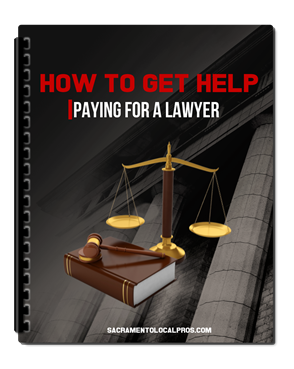If you've been injured due to someone else's negligence, you may be wondering if you have a case for a personal injury lawsuit.
Filing a personal injury lawsuit can be a complex and time-consuming process, but if successful, it can help you recover damages for your injuries.
Here are 10 tips to help you through the process.
1)) Hire An Experienced Personal Injury Attorney
If you've been injured in an accident, it's important to consider hiring a personal injury attorney.
An experienced lawyer can help you navigate the complexities of your case and seek the compensation that you deserve for your injuries.
With their knowledge and expertise, they will be able to provide guidance on any legal issues related to your case and represent you in court if necessary.
They may also be able to negotiate with insurance companies or other parties involved in order to get a better settlement for you.
By choosing an experienced personal injury attorney, you can rest assured that all of your interests are being taken care of properly.
2)) Gather Evidence
If you’ve been injured due to someone else’s negligence, you may be considering filing a personal injury lawsuit.
Before taking this step, however, it is important to gather evidence that will support your case.
This can include medical records, police reports, and witness statements as well as photographs of the scene of the accident and any damage caused by it.
Gathering this type of evidence can help strengthen your case in court and ultimately lead to a successful outcome for you.
3)) Calculate Your Damages
It is important to calculate your damages before filing a personal injury lawsuit.
Damages can include both economic and non-economic losses such as medical expenses, lost wages, pain and suffering, emotional distress, and even legal fees.
Knowing the full extent of your damages will help you make an informed decision about whether or not a personal injury lawsuit is necessary.
Calculating your damages beforehand will also provide invaluable information that can be used in negotiations with insurance companies or when presenting evidence in court.
With this knowledge at hand, you can ensure that you receive fair compensation for all of the injuries suffered as a result of someone else’s negligence.
4)) File A Complaint With The Court
Filing a complaint with the court is an important step for anyone who has been involved in a personal injury incident.
Not only does this help to protect your rights and ensure that justice is served, but it also allows you access to legal representation, as well as damages or compensation that may be owed.
Filing a complaint can help to create a paper trail and provide evidence of the incident should it go to trial.
It is important to act quickly, however; if too much time passes between the incident and filing a complaint, it can cause issues in court or even lead to the case being dismissed.
Taking this step is an important part of asserting your rights and getting justice for any harm that has been done.
5)) Serve The Defendant With The Complaint
Once the complaint has been filed, you will need to have it served on the defendant (the person or company you are suing).
This can be done by hiring a professional process server or by having someone over the age of 18 hand-deliver it to the defendant.
6)) The Defendant Has 20 Days To Respond
Once served, the defendant has 20 days to file an answer to the complaint with the court.
If they do not answer within this time frame, they may be subject to a default judgment in your favor.
7)) Engage In Discovery
Once the answer has been filed, both sides will have an opportunity to gather information from each other through discovery methods such as depositions and requests for documents.
This is an important step in building your case as it allows you to learn more about what evidence the other side has and what their arguments may be.
8)) Negotiate A Settlement
Most personal injury cases are settled out of court through negotiation between the attorneys for both sides.
If a settlement cannot be reached, then your case will go to trial before a judge or jury.
9)) Trial Preparation And Presentation
If your case goes to trial, your attorney will help you prepare for trial by gathering witnesses and evidence, preparing for cross-examination, and making opening and closing arguments on your behalf.
During the trial, it is up to the jury (or judge if it is a bench trial) to determine whether or not you should receive damages and how much those damages should be.
10)) Appeal
If either party is dissatisfied with the outcome of the trial, they may file an appeal with a higher court.
Appeals can be costly and time-consuming, so it is important to discuss this option with your attorney prior to trial.
Appeals are often based on errors that were made during the trial, so it is important that you have an experienced attorney who knows how to avoid these errors.
Conclusion
Filing a personal injury lawsuit can be an intimidating process, but if you take the time to research and prepare ahead of time, it can make your case smoother.
By following these 10 tips for filing a personal injury claim, you’ll be better informed about what to expect and how to get the best outcome possible.
Remember that this is not something you have to do alone; every case is different, so it is important that you consult with an experienced attorney who can evaluate your specific situation and give you tailored advice.
Download Our Free E-book!








